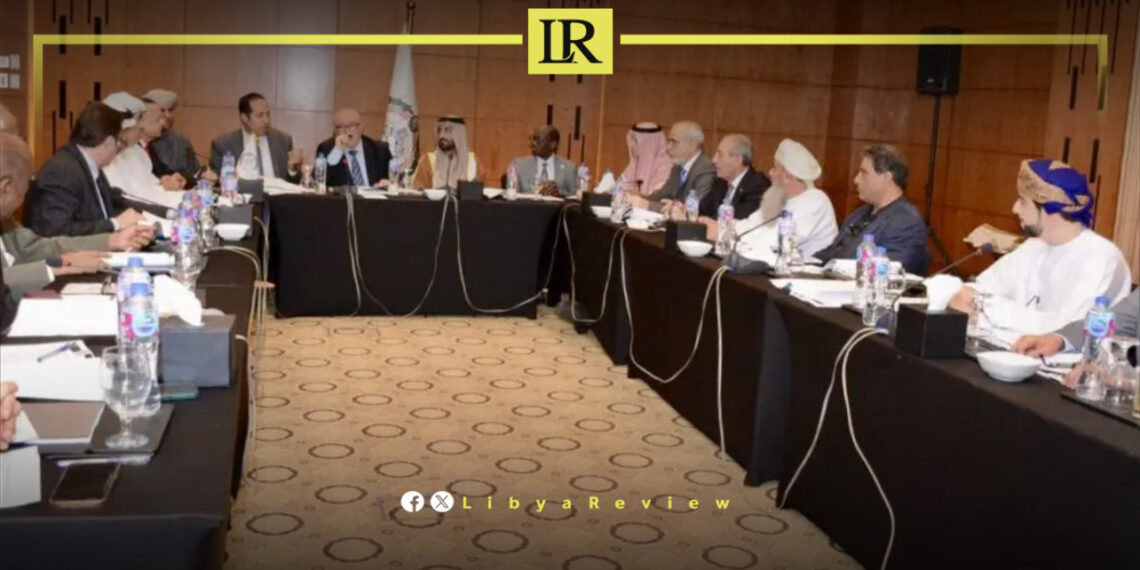Libyan representatives in the Arab Parliament, Abdelsalam Naseya, Hassan Barghouti, and Abu Salah Shelbi, participated in the standing committees’ meetings held at the Arab Parliament headquarters in Cairo, Egypt, this Thursday.
The Committee on Foreign Affairs, Political Affairs, and National Security discussed the latest political and security developments in the Arab world amid ongoing events. Meanwhile, the Economic and Financial Affairs Committee deliberated on the economic situations across Arab nations and the repercussions of political circumstances on economic conditions and their impact on achieving Arab economic integration.
Furthermore, the Committee on Legislative and Legal Affairs and Human Rights reviewed a draft Arab model law on combating illegal immigration, alongside discussing an Arab vision for protecting religious symbols and beliefs and preventing their desecration. The committee also reviewed the 2024 human rights situation in the Arab world.
Libya has been in chaos since a NATO-backed uprising toppled longtime leader Muammar Gaddafi in 2011. The county has for years been split between rival administrations.
Libya’s economy, heavily reliant on oil, has suffered due to the ongoing conflict. The instability has led to fluctuations in oil production and prices, impacting the global oil market and Libya’s economy.
The conflict has led to a significant humanitarian crisis in Libya, with thousands of people killed, and many more displaced. Migrants and refugees using Libya as a transit point to Europe have also faced dire conditions.
The planned elections for December 2021 were delayed due to disagreements over election laws and the eligibility of certain candidates. This delay has raised concerns about the feasibility of a peaceful political transition.
Despite the ceasefire, security remains a significant concern with sporadic fighting and the presence of mercenaries and foreign fighters. The unification of the military and the removal of foreign forces are crucial challenges.


